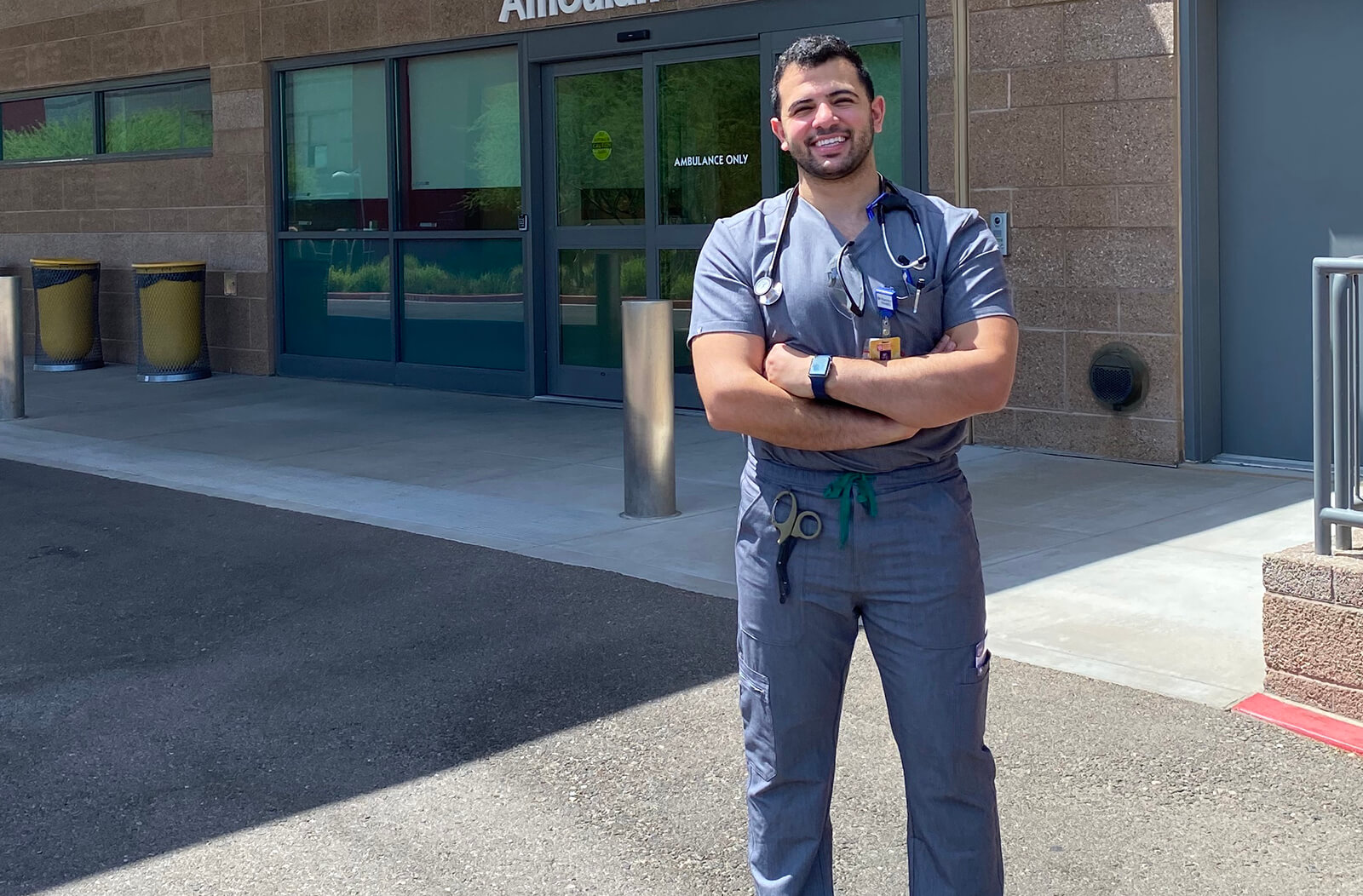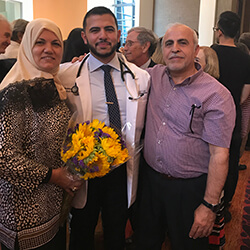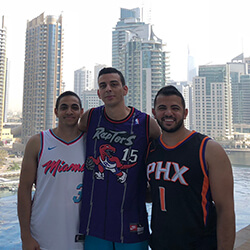
Match Day Student Profile: Mohammad Mousa

Every third Friday in March, medical schools across the United States send off their fourth-year medical students on the next chapter in their careers. On Match Day — the day an MS4 opens their coveted envelope to learn where they will spend the next several years as a resident-physician — is a long-awaited and well-deserved day to celebrate. The University of Arizona College of Medicine – Phoenix profiled several students for Match Day 2021.
Meet Mohammad Mousa

Match Day is a proud milestone for him. Mousa matched in emergency medicine at the University of California, Davis.
“After Match Day, it starts all over again from ground zero,” he said. “Yes, residency is the goal; however, there are other things that I’m interested in. I want to be more than just a physician,” Mousa said. “I want to be a servant leader and physician advocate, who’s a voice for the patient and for the community.”
Students are encouraged to keep an open mind during their clinical rotations in the third year of medical school. Mousa initially thought his specialty would be surgery, but found emergency medicine to be a better fit. Working in the emergency department, he says, will allow him to see the depth of pathology, treat any condition and then stabilize patients.
Mousa and his family have a strong connection to their Palestinian heritage. As a first-generation American, he is acutely aware of the dearth of physicians and health care facilities available in many communities in Palestine.
“When I think about how doctors operate in the Middle East and about how they work typically in these rural cities, there are only two or three doctors for the entire community,” Mousa said. He has seen firsthand how one physician there can operate as an emergency physician, a hospitalist and a pediatrician.
Because of his world view, he sees himself volunteering with organizations like Doctors Without Borders and pursuing disaster medicine, a subspecialty of emergency medicine.
“That puts me in a perfect position to work domestically and internationally. I see that in my future.”

“The AZDHS's [Arizona Department of Health Services] Vaccine Task Force has truly helped open my eyes to enormous cases of health care disparities within my own community. I understand the necessity for public health and hope to continue being an advocate for my community,” he said.
About the College
Founded in 2007, the University of Arizona College of Medicine – Phoenix inspires and trains exemplary physicians, scientists and leaders to advance its core missions in education, research, clinical care and service to communities across Arizona. The college’s strength lies in our collaborations and partnerships with clinical affiliates, community organizations and industry sponsors. With our primary affiliate, Banner Health, we are recognized as the premier academic medical center in Phoenix. As an anchor institution of the Phoenix Bioscience Core, the college is home to signature research programs in neurosciences, cardiopulmonary diseases, immunology, informatics and metabolism. These focus areas uniquely position us to drive biomedical research and bolster economic development in the region.
As an urban institution with strong roots in rural and tribal health, the college has graduated more than 1,000 physicians and matriculates 130 students each year. Greater than 60% of matriculating students are from Arizona and many continue training at our GME sponsored residency programs, ultimately pursuing local academic and community-based opportunities. While our traditional four-year program continues to thrive, we will launch our recently approved accelerated three-year medical student curriculum with exclusive focus on primary care. This program is designed to further enhance workforce retention needs across Arizona.
The college has embarked on our strategic plan for 2025 to 2030. Learn more.